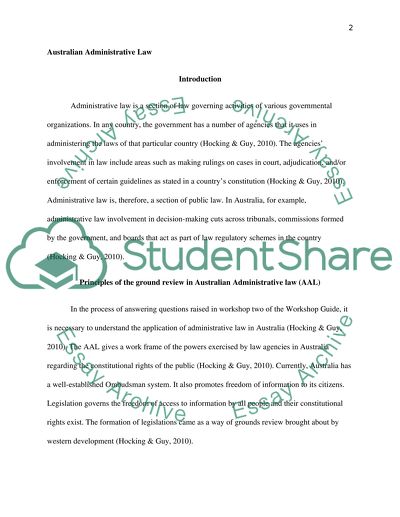Cite this document
(“Australian Administrative Law Essay Example | Topics and Well Written Essays - 1500 words”, n.d.)
Retrieved from https://studentshare.org/law/1452499-australian-administrative-law
Retrieved from https://studentshare.org/law/1452499-australian-administrative-law
(Australian Administrative Law Essay Example | Topics and Well Written Essays - 1500 Words)
https://studentshare.org/law/1452499-australian-administrative-law.
https://studentshare.org/law/1452499-australian-administrative-law.
“Australian Administrative Law Essay Example | Topics and Well Written Essays - 1500 Words”, n.d. https://studentshare.org/law/1452499-australian-administrative-law.


